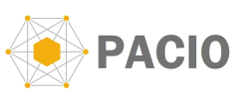PACIO Advance Directive Interoperability Implementation Guide - Local Development build (v0.0.1). See the Directory of published versions
TODO This implementation guide provides a set of resource profiles to define how information should be packaged and communicated in the exchange of Advance Directive Information. In the following sections the highlights of the key fields of each profile are presented and guidance for building profile instances is provided.
A note on the use of “Must Support” in the Implementation Guide: For profiles defined in other IGs, the meaning of “Must Support” is established in the defining IG. For profiles defined in this IG, Must Support will conform with US Core definition.
This resource profile is intended to be used for data exchange of Advance Directive Information.
| Key Fields to Highlight | Description & Constraints |
|---|---|
| TODO | Placeholder |
The PACIO data model as expressed in the resource profiles is designed to be flexible so as to facilitate the exchange of a variety of types of Advance Directive Information. The key to effective data exchange and searching of advance directives is the use of content standards. Therefore, it is paramount that nationally accepted, standardized coding systems such as LOINC and SNOMED are used in specifying advance directive data elements.
In the following set of examples, we provide guidance for using specific codes and conventions for constructing profile instances for data exchange. Although we reference a number of advance directive types and provide examples to show how those particular types can be exchanged, others can be communicated through the same methods. Our intention is to demonstrate the flexibility and adequacy of the PACIO data model, rather than provide an exhaustive list of advance directive information types.

Guidance and Notes: